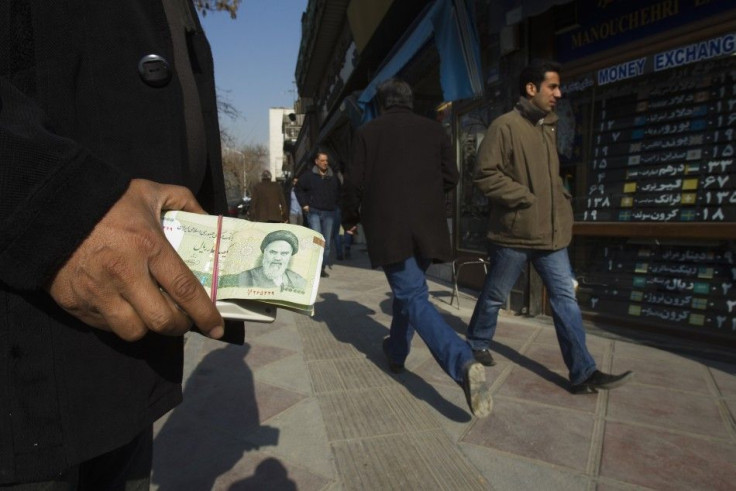U.S. Sanctions Hamper Iranian Bid to Recover $1.75 Billion
ANALYSIS

Iran's effort to recover some $1.75 billion frozen in a U.S. bank faces a new obstacle due to a law President Barack Obama signed last month, potentially further squeezing Tehran's economy and exacerbating tensions between the two countries.
When Obama signed the National Defense Authorization Act on New Year's Eve, a provision required him to freeze any money held by or for Iranian financial institutions in the United States and to prohibit any future transactions.
The $1.75 billion was uncovered in 2008 in a New York branch of Citibank, a unit of Citigroup Inc., having been deposited by a Luxembourg-based bank.
A U.S. court froze the funds when survivors and victims' families from the 1983 Beirut bombing of barracks housing U.S. and French soldiers in a multilateral peacekeeping force argued it should help pay a $2.65 billion judgment against Iran for its alleged role in that attack.
If the administration does impose its own freeze and seizes the money, then that could set off a frenzy by Americans who have won default financial judgments against Iran in U.S. courts as they try to get a slice of the cash.
Obama and his team will have to decide whether they want to distribute that money or use it as a lever in negotiations with Tehran, which has been at loggerheads with the West over its nuclear program.
You'll see the funds frozen or remain frozen, but that Washington would be reluctant to see a payout at this particular moment in time, said Suzanne Maloney, a former U.S. State Department adviser and now a senior fellow at the Brookings Institution.
There have been hundreds of billions of dollars in default judgments against Iran levied by U.S. courts in favor of Americans, but there are broader foreign-policy issues that will likely give the Obama administration pause, she said.
Large Sum
With such a large sum on the line and with Iran beset by economic sanctions from Western countries skeptical of its assertion that it does not seek to develop atomic bombs, Iran's central bank plans to file a motion for the funds next month.
Known as Bank Markazi, the central bank will argue the funds, because they were being used as currency reserves, are protected from seizure under the U.S. Foreign Sovereign Immunities Act, according to a New York-based lawyer for the central bank.
My view is that the funds will not be distributed for the benefits of the plaintiffs [suing to get the Iranian money] as this was not the purpose of the new law, said Ingrid Wuerth, a law professor at Vanderbilt University.
A judge in Washington ruled in 2007 that Tehran supported the militant group Hezbollah with the 1983 attack that killed 241 service members.
There are now two reasons why those assets would be frozen in the United States, said Juan Zarate, a counterterrorism official during the Bush administration now with the Center for Strategic and International Studies.
Any challenge to the freezing of those assets will have to take on both of those legal frameworks and arguments, he said.
Lawyers Scramble
Tehran says its nuclear program, including a push to enrich uranium, is for commercial uses and not nuclear weapons.
Now lawyers in the United States are scrambling to figure out the impact of the new law and whether it could ultimately lead to the forfeiture of the money held in New York.
It is unclear at present whether, once [the new law] is implemented, the $1.75 billion would remain frozen at Citibank in New York until further action is taken by Congress or the president, or if those assets would be distributed to specific default-judgment creditors and their lawyers, said David Lindsey, a lawyer representing the Iranian central bank.
But the survivors and victims' families do not hold judgments against Bank Markazi, and they have never alleged that Bank Markazi had any involvement in the underlying events that gave rise to the default judgments, said Lindsey, a partner with Chaffetz Lindsey LLP in New York.
In most cases, Iran has ignored legal proceedings in the United States. It has been all but cut off from U.S. financial institutions as part of past sanctions against the country.
Lawyers for the survivors and families of the victims have argued that Iran's central bank is part of the Iranian government, which played a role in the 1983 bombing.
All sides are closely examining the new law signed by Obama to see how it will apply to that case and whether it freezes the money indefinitely, or whether the money can be used to fulfill judgments against Iran.
We're studying the statute to establish its implications for our case, said Steven Perles, an attorney for the survivors and victims' families of the 1983 attack.
We are expecting to have discussions about the statute with both the Treasury and the Congress, he said.
(Editing by Howard Goller and Todd Eastham)
© Copyright Thomson Reuters 2024. All rights reserved.






















